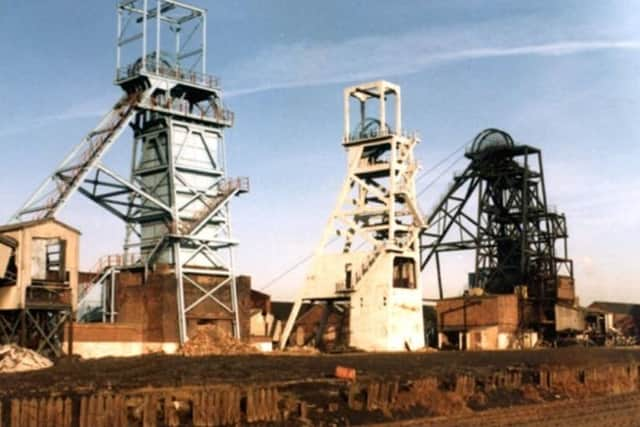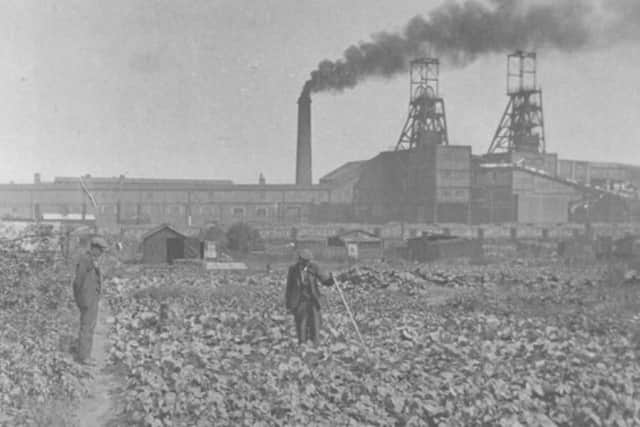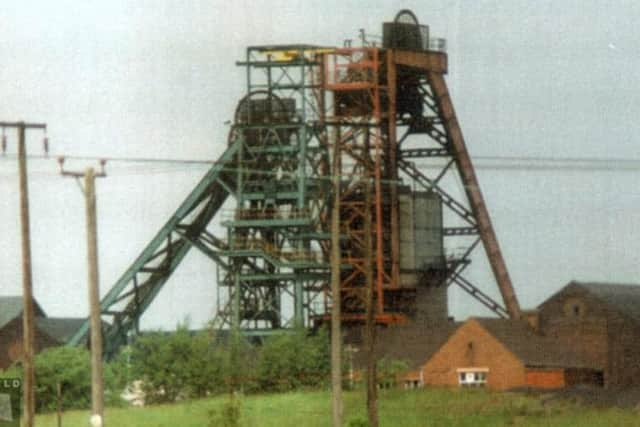‘Can we harness our industrial past?’: Hopes for mine water power as Wakefield Council joins climate change ‘A list’
and live on Freeview channel 276
The council has been given an A rating for 2023 by the Carbon Disclosure Project (CDP).
The global non-for profit organisation runs the world’s environmental disclosure system for companies, cities, states and regions.
Advertisement
Hide AdAdvertisement
Hide AdA CDP rating is seen as a ‘gold standard’ of performance for climate change, with organisations from over 90 countries disclosing data annually.


The rating puts the district among the top 13 per cent of authorities globally.
Last year, Wakefield narrowly missed out on top marks when it was ranked A-(minus).
Just three other council’s in Yorkshire – Leeds, Kirklees and York – have an A rating.
Advertisement
Hide AdAdvertisement
Hide AdJack Hemingway, Wakefield Council’s deputy leader with responsibility for climate change, said: “Wakefield is sometimes a bit of an underdog in West Yorkshire.


“We are smaller than Leeds, so it is nice that we can be up there with the best in the country and show that we do have best practice standards.
“Wakefield is working to the top level on climate action and have got the ambition to sustain that and keep that going.”
CPD said the council has “set ambitious goals and has made progress towards achieving those goals.”
Advertisement
Hide AdAdvertisement
Hide AdCoun Hemingway said action taken to help gain the new grade has included planting 100,000 trees since 2020, with another 50,000 to be planted this winter.


An LED street lighting programme has reduced energy use by more than 80 per cent, saving more than 4,000 tonnes of carbon a year.
Earlier this year, the council entered into a partnership to install solar panels on school buildings.
The district’s first climate summit was held in March as part of its aim of reducing carbon emissions.
Advertisement
Hide AdAdvertisement
Hide AdAir source heat pumps, LED lighting and solar panels have been installed at public buildings including Normanton swimming pool and libraries at Airedale and Stanley.


A total of £6m has been pledged for replacing the council’s fleet of petrol and diesel cars and vans with electric vehicles.
A new EV charging strategy has been set up and the council is working with West Yorkshire Combined Authority to provide more public charging points.
Coun Hemingway added: “We have had a lot of plans in gestation for a number of years now and we are really starting to see them come to fruition.
“But we also have got a lot of projects in the pipeline.”
Advertisement
Hide AdAdvertisement
Hide AdCoun Hemingway said hopes are high of tapping into the potential of geothermal energy from the many former coal mines in the area.Some experts have predicted that there are great
opportunities for coalfield communities to help achieve net zero targets by using naturally heated water from old pits.
Coun Hemingway said: “This is something that I am particularly excited about
“Can we take that industrial past – Wakefield’s legacy – from all those mineshafts in the earth?
Advertisement
Hide AdAdvertisement
Hide Ad“Can we harness that to create low carbon heat networks for people and businesses?
“It is still early days, but positive progress is being made.”
The council also has plans to build two of its own major solar farms, in Ossett and South Kirkby, which could provide two-thirds of its energy needs.
The scheme for Ossett hit a snag in July as there was no remaining National Grid capacity near the site at Lodge Hill Farm.
Advertisement
Hide AdAdvertisement
Hide AdCoun Hemingway said an alternative site in the town is now being considered, adding: “We are in discussions with a businesses that is looking at developing a solar farm in that area and they have expressed an interest in working with the council.
“The end game is that we might acquire it from them.”
Earlier this month, the council’s planning committee rejected an application to extend the life of Welbeck Landfill Site.
The decision could bring an end to tipping at the site, near Normanton, after more than 25 years of protest by local residents and campaign group RATS (Residents Against Toxic Scheme).
Coun Hemingway spoke against the plans at the committee meeting.
Advertisement
Hide AdAdvertisement
Hide AdDumping waste at Welbeck could be prohibted by the end of next month.But the site operator has said it plans to oppose the decision
The council has ambitious plans to turn the area into a country park.
Coun Hemingway said: “I have not heard from any council officer that an appeal has been submitted.
“They are obviously thinking about what they are going to do.”
Advertisement
Hide AdAdvertisement
Hide Ad“Obviously, I am opposed to the application and will be objecting again if they do appeal.
“I think it was the right result and I’m really pleased for campaigners who have been fighting for years and they have finally been vindicated.
“We will just keep continuing the fight. We all want to see that country park be realised.”
The council declared a climate emergency in May 2019 and issued a pledge to become a carbon neutral authority by 2030.
Advertisement
Hide AdAdvertisement
Hide AdIt is hoped the whole of the district can achieve the same goal by 2038.
The deputy leader said he is “confident” that the 2030 goal will be met, but added: “Meeting the 2038 target for the wider district is a bigger challenge.
“We are going to need significant regional and government funding to hit that.
“That is about de-carbonising hundreds of thousands of homes and moving away from petrol and diesel cars.
“It is a totally different order of challenge.
Advertisement
Hide AdAdvertisement
Hide Ad“For example, the motorways in Wakefield produce something like two million tonnes of CO2 a year, which we can’t control.
“All we can do is try and plant trees, promote electric vehicles and try to improve air quality.
“But ultimately that is going to need government and Highways Agency action to deal with that.”